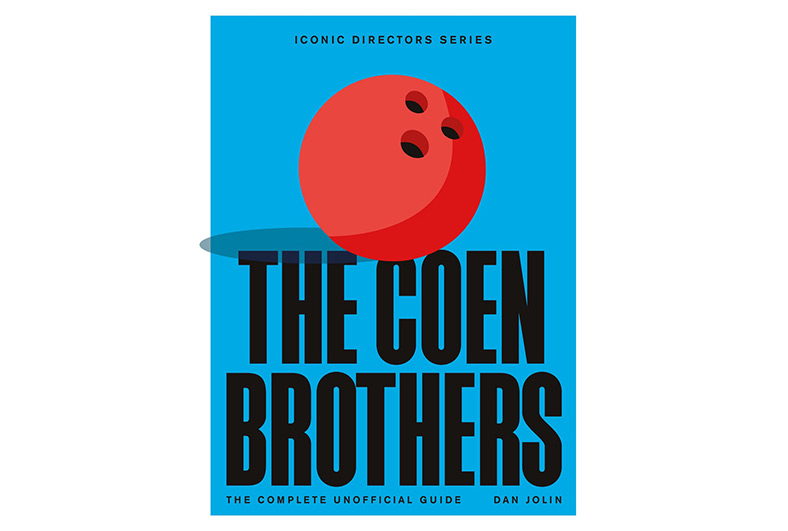‘There is absolutely hunger for a quality print magazine’: Interview with freelance film journalist and editor of Senet magazine, Dan Jolin

Versatility is a key quality for standing out in the modern media industry, and one journalist that has been part of massive changes in publishing is Dan Jolin. Starting out in 1997 at Total Film magazine, Dan has shown versatility throughout his own career, changing from magazine journalist to freelance writer and now to published author.
He recently released the first two books in the Iconic Director series, covering the works of Quentin Tarantino and the Coen Brothers, and we caught up with him to discuss these, his career as a film journalist, and going back to his roots by starting a magazine on board games.

You’ve worked in film journalism for over two decades – how has the industry changed during that time, and what have been some of your highlights?
In terms of publishing, I’ve seen huge changes from when I started out. Lifestyle and consumer magazines were absolutely booming. They were a real part of the culture in the late 90s. Then the internet became what the internet is, and print media was wrestling with that and going multi-platform. It’s probably the biggest change you could possibly imagine, to be working in print journalism at that time.
In terms of the entertainment industry changing, you’ve gone from the era of the star to the era of intellectual property. Previously, you could have Tom Cruise, or Julia Roberts, or Tom Hanks, and just put them on the cover of a magazine and people would want to buy it. These days, you don’t put stars on covers. You put characters on cover. It’s not Robert Downey Jr, it’s Iron Man, for example. But that transition for me has worked just fine as I’m more of a geek.
The highlight that instantly springs to mind is covering the films of Christopher Nolan at Empire magazine. I got some very rare and privileged access to some of his films, and was basically a fly on the wall seeing Christopher do what he does on films like ‘The Dark Knight’, ‘Inception’, and ‘Interstellar’. The work that came out of that is some of my proudest work. I wrote the biggest feature I’ve ever written, which was allowed to go to about 7,000 words, reflecting on the whole making of the ‘Dark Knight’ trilogy. I did extensive interviews with everybody, touching on the three different films all through the prism of that final film happening.
Five years ago you co-founded Senet magazine – what was your motivation behind starting a print magazine and what are some of the successes and challenges you have faced?
It was a passion project that came from a collaboration with someone I’d never met before, a brilliant designer called James Hunter, who got in touch with me. It very quickly became apparent we both had the same aim, which was to create a magazine which treated board games as a serious part of culture – in the same way that other magazines treat film or music.
I also knew that board gaming was undergoing a renaissance and a commercial resurgence. For example, board gaming is the largest category on Kickstarter. People love playing board games, and there’s a social aspect to it. It’s face-to-face, it’s in person. It takes you away from screens. It’s positive social interaction. This was something that I wanted to encapsulate in a print magazine.
I’ve found that if you can find your right audience, there is absolutely a hunger for a quality print magazine. When I say quality, I don’t just mean the design and the writing. I mean the paper and the actual tactile interaction that you have with this product. It’s a niche area, but we are very comfortable in it. We have just under 3,000 subscribers worldwide now, a print run of double that, and we are still selling back issues. I editorially designed it to be perennial, so while there is material in there that’s hooked to new board game releases, for the most part, it takes an approach which is more reflective of different aspects of board game creation and artistry. That means you could pick up an issue that was published five years ago and it wouldn’t feel out of date. It would still feel fresh.
What advice would you give to an aspiring film journalist when it comes to writing reviews and interviewing actors/directors?
In regards to interviews, I’ve had to get used to trying to get the most out of a very small amount of time, because quite a lot of the time you’re talking to people on a very busy schedule. You have to be very structured and think, ‘What are the essentials that I need to get out of this interview?’ and make sure you get them, because you have that time-pressure factor. Otherwise, do your research and show your enthusiasm, show that you’re a specialist writer, and that you know what you’re talking about. It should feel like a conversation, or that you’re sharing a passion because that’s ultimately what it is. I love what they do. They love what they do. So why shouldn’t it be a pleasant conversation?
In terms of reviewing, it’s remembering the most important person in the equation is your reader. You’re not writing it to impress the people that made the film. Are your specific readership going to appreciate it if you’ve put them onto something they might not have otherwise seen, or if you steer them away from something that they might have otherwise wasted their money on? That’s the most important thing.
Can you tell us about your Iconic Directors books on the Coen Brothers and Quentin Tarantino in a few sentences?
They’re both unofficial guides to these iconic filmmakers without whom cinema would not be the same. It’s my appraisal of what makes them so great, and each book is constructed as a filmography. It goes through their career, film by film, looking at the themes that concerned them, the stylistic quirks they have, and how they’ve evolved and developed and become so beloved.
How did the opportunity to write the books come about?
Rather boringly, it all started with a LinkedIn message. I got a message from an editor at Quercus, Kerry Enzor, asking if I would be interested in doing this series. I took a look at how they were proposing to present it, and we just started talking. I, rather selfishly, gave a list of directors I’d like to start with. On that list were the Coen brothers and Quentin Tarantino, because they’re filmmakers that have a lot of personal resonance for me. I thought, if I’m going to re-binge watching all their films and go deep diving into research, then I should at least really like their work.
I understand you’re working on two more books in this series, what directors are these about and how has the process been writing a series of books like this?
I’ve just completed one on Christopher Nolan, and I’ve just started work on one about James Cameron. Two guys who are more at the blockbuster end of things.
The process doesn’t feel vastly different to journalism. As with any feature you, you dive into research and you absorb stuff as deeply and as broadly and as quickly as you can in the time you have allotted. Then you wrap that up with your own insights and thoughts.
The deadlines were pretty tight, so I had to commit and say I’m going to do nothing else for a bit. That was actually quite nice because as a freelance writer, I’ve usually got lots going on. Whereas with this, I just shut everything else out work-wise and just focused. The flip side of it was, I hate saying no to work, and I had to say no to quite a few other things to get these books over the line.
The Coen Brothers and Quentin Tarantino, part of the Iconic Directors Series published by Greenfinch are out now, RRP £14.99. Follow Dan on X (formerly Twitter) by clicking here to keep up with his freelance work, or if you’re interested in the world of board games then you can follow Senet here.
If you’re also a journalist who has recently published a book, or you want to chat about the changing media landscape more generally, then contact us via news@responsesource.com.

